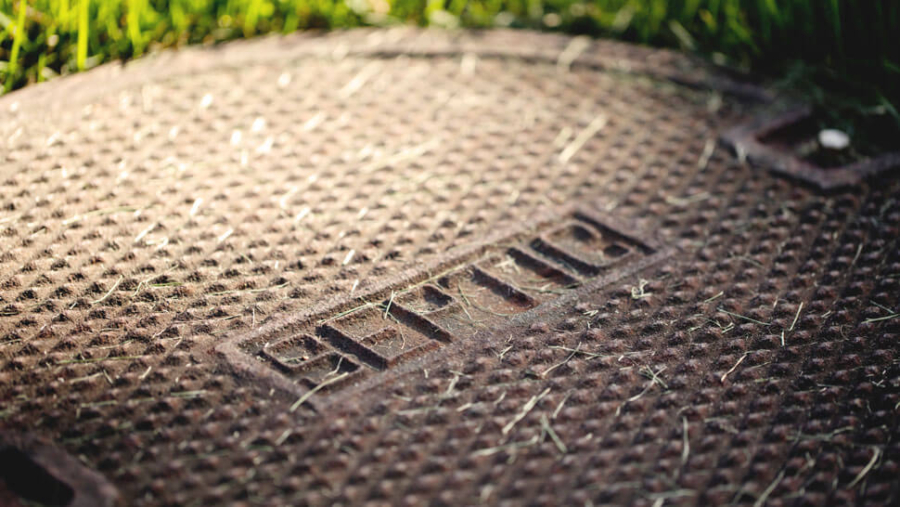
Changes to septic tank regulations – what does this mean for property owners/sellers?
3 April 2020

Changes to the rules governing septic tanks and sewage treatment now affect many home owners, especially in rural areas, who have an old septic tank which drains directly into a watercourse.
Why have the rules changed?
The changes, which took effect from January 1 this year, have taken place because the government aims to reduce the level of sewage related pollution in our watercourses. Traditional septic tanks pose a high pollution risk due to their low grade treatment of waste, meaning the discharge from the septic tank is not clean enough to be discharged into our rivers.
While older septic tanks are no longer suited to the modern demands of dishwashers and washing machines, small sewage treatment plants, when correctly installed and working, treat sewage to a higher standard than a septic tank, meaning that the water coming out is clean enough to go into a local water source.
The changes to the general binding rules will put the responsibility squarely at your door to improve and upgrade your system where necessary. You are also responsible for the ongoing maintenance, monitoring and record keeping of your drainage system in accordance with these rules.
Awareness of the changes is not widespread and understandably there has been frustration and confusion on the part of property owners. Our regulatory team are specialists in advising individuals facing enforcement action at the hands of the Environment Agency (EA) or National Resources Wales (NRW).
Changes to septic tank discharges
The rules stipulate that if you are the ‘operator’ of a septic tank that discharges directly to surface water i.e. a ditch, stream, river etc, then you should have replaced or upgraded your septic tank treatment system to a full sewage treatment plant.
Contact our Real Estate team now.
Therefore any septic tank that currently discharges into a water course will need either to be replaced by a compliant sewage treatment plant or the discharge to the water course must be stopped and diverted to a drainage field that meets British Standards. Failure to do so will mean you are in breach of the rules and your system is operating illegally.
Am I the operator?
The ‘operator’ is the person responsible for ensuring that drainage system meets the requirements, so you are the operator if:
- You own the property that uses the system.
- You own a property that shares the system with other properties – in those circumstances each property owner is an operator, as you are jointly responsible for complying with the rules.
- You have a written agreement with the property owner i.e. that you are renting a property and that you are responsible for the system’s maintenance.
As the operator, what do you need to do?
- If you have a septic tank, find out whether you discharge to ground or surface water. See below if you drain to surface water which is a water course.
- Regularly empty and service your septic tank or sewage treatment plant with a registered waste carrier and keep evidence of this.
- If you drain to surface water, you will need to rectify this straight away – we strongly recommend that you call a reputable company who can guide you from this point to compliance and thereafter to maintenance.
- Regularly check that your sewage treatment plant or septic tank and any drainage field is working correctly; if not, you should deal with any pollution issues promptly. Is it waterlogged? Blocked? Could it therefore be polluting?
- You must keep a record of any spills and complaints.
- Keep a record of any work or repairs that you have done.
What to do if your septic tank discharges directly to surface water i.e. a water course
This is illegal as it is a breach of the rules imposed by the EA. The y may take enforcement action against you and will require you to rectify the issues or they could fine you.
If you have any doubts as to how your system works and whether it is compliant, you should get advice from a competent service engineer.
What to check if your septic tank or small sewage treatment plant discharges to the ground
Under the general binding rules your sewage must be domestic in nature and not cause pollution. You will need to apply for a permit if you release (or discharge):
- To a well, bore hole or other deep structure.
- More than 2000 litres per day.
- Into a groundwater source protection zone (SPZ1).
Selling your property
Even though the new rules are designed to simplify matters, they can be daunting.
If you keep records and ensure that your waste disposal system complies with the rules, it will not hinder the sale of your property. But if there are problems, and your system does not comply with the rules, that can cause delays and could lead to buyers requiring a price reduction, or worse still, pulling out of the transaction.
So if you are thinking of putting your property on the market, get a health check of your drainage system; any reputable drainage company will be able to guide you on this.
Installing a new septic tank
There will be many things to consider when you come to install a new sewage treatment plant. You will need to consider:
- Running costs
- Siting of the plant
- Its capacity
- Whether it conforms to British Standards
- Whether you have building regulations
- If you need planning permission
A reputable sewage treatment company can offer comprehensive guidance.










